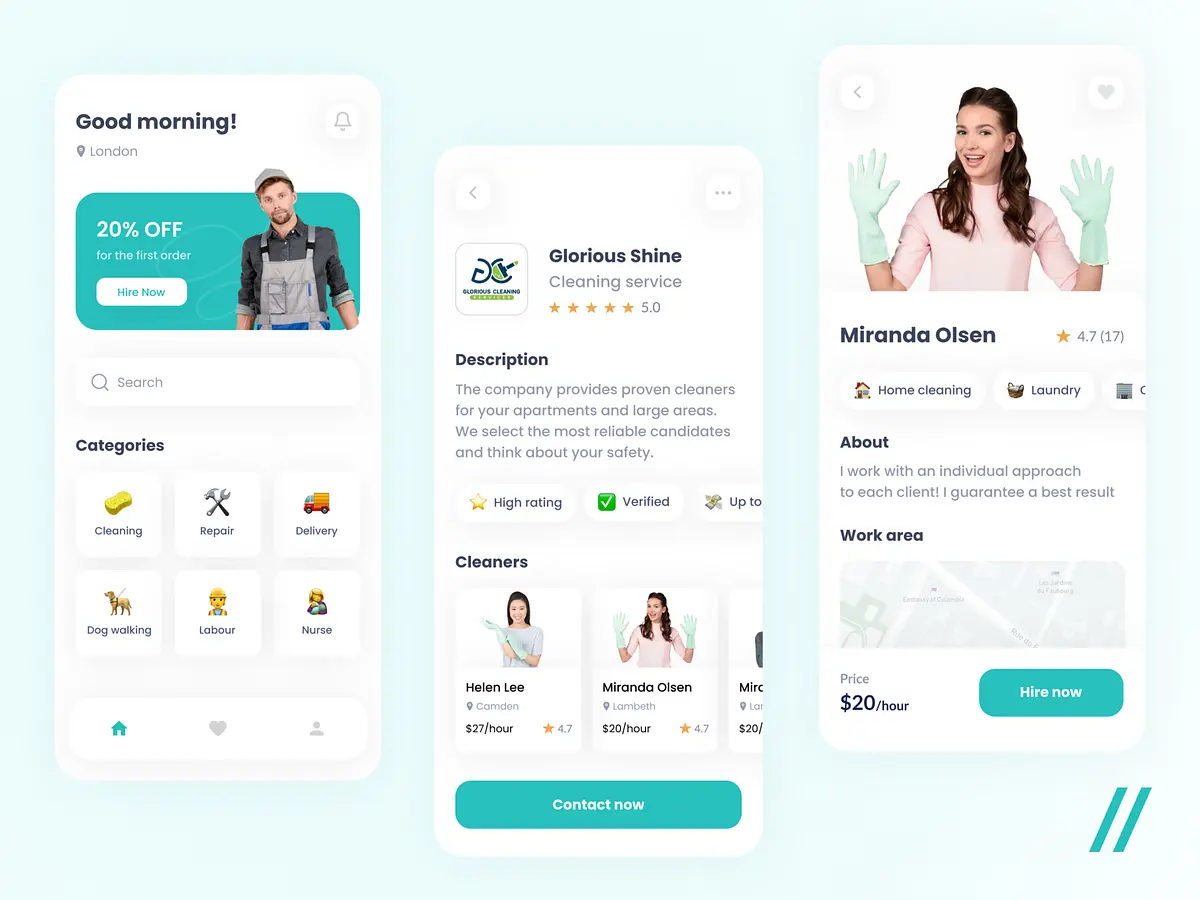The Benefit and Examples of AI Business Consulting


According to the “Global State of AI, 2022” report by research firm Frost & Sullivan, eighty-seven percent of organizations believe that artificial intelligence and machine learning will significantly benefit their operations, from cutting costs to automating procedures. As a result, there is a growing trend of businesses looking for consulting services to take advantage of this power. This blog explores how organizations can leverage this cutting-edge technology to stay competitive and look at practical uses of AI business consulting.
AI consulting brings cutting-edge technologies and data-driven insights to businesses, enabling them to make more accurate and strategic decisions. Expert systems can provide valuable predictions and recommendations by analyzing vast data and identifying patterns, helping companies to understand market trends, customer preferences, and potential risks. This results in better-informed choices that can give companies a competitive edge and drive growth.
Business intelligence consultants offer firms the opportunity to optimize their operations and cut down on unnecessary expenses. Companies can reduce manual labor, minimize errors, and eliminate inefficiencies through automation and computerized processes. Moreover, AI systems can analyze data to identify cost-saving opportunities and recommend resource allocation strategies, ensuring businesses maximize their budgets and resources.
A thorough examination of the current business processes implemented by artificial intelligence consulting companies is essential to improve various areas. By incorporating data-driven workflows, businesses streamline operations, increase productivity, and produce prompt and accurate results. Employees can shift their focus to strategic and inventive parts of their roles thanks to the capacity of autonomous systems to handle repetitive activities correctly, leading to improved performance and increased customer satisfaction.
Learn more about what TECHVIFY can do with Artificial Intelligence:
Customer Service
Customer service is one of the most well-known ways artificial intelligence works in business. AI-powered virtual assistants and chatbots are changing how businesses communicate with their clients. According to a Forbes Advisor poll, 73% of firms use or intend to use AI-powered chatbots for instant messaging. These digital assistants can efficiently fix problems, offer individualized help, and react swiftly to client questions. AI enables customer support employees to concentrate on complicated inquiries by automating basic operations, increasing customer happiness and loyalty.
Cybersecurity
Data security is crucial for any business in the digital age. Entrepreneurs utilize intelligent machines to continuously analyze enormous amounts of data to spot potential threats and vulnerabilities, strengthening cybersecurity measures. Modern AI algorithms can quickly identify and respond to security breaches, reducing risks and protecting sensitive data. Businesses may proactively safeguard their systems and data from growing cyber threats using automated cybersecurity solutions.

The importance of AI consulting in business
Digital Personal Assistants
AI-powered digital personal assistants have become essential in AI consulting companies, enhancing the quality of human life and business operations. These clever helpers automate monotonous chores, manage schedules, and streamline business procedures. These assistants increase productivity and efficiency by integrating with other corporate tools and apps, enabling workers to concentrate on more strategic and creative facets of their jobs.
Inventory Management
By precisely forecasting demand and simplifying inventory levels, AI business consulting service optimizes supply chain activities in sectors that depend on inventory management. Intelligent algorithms use historical data, market trends, and other pertinent information to analyze past data and make data-driven judgments to minimize stockouts and overstock situations while lowering inventory expenses.
Content production
With tools that automatically create material like articles, social media postings, and product descriptions, AI also makes a name for itself in the content creation industry. Even if human creativity and knowledge are still essential for creating brand storylines and upholding authenticity, AI-generated content can be helpful.
Operations
The influence of cognitive computing in business operations is vast, impacting various departments, from sales and marketing to human resources and accounting, including accounting, sales, and marketing. Businesses can make data-driven choices, improve operations, and optimize resource allocation thanks to AI-driven analytics and insights.
Across numerous industries, many businesses have adopted AI to enhance profit. Companies should consider getting help from reliable AI consulting companies like TECHVIFY before starting a full-scale implementation to ensure maximum efficiency and seamless AI integration.
Automated customer support, where computerized automatic responders and online customer support systems improve client interactions and offer speedy solutions, is an example of artificial intelligence in business management. Another example of using AI in business is process automation, which automates various repetitive operations to increase productivity and decrease human error. In the area of business forecasting, robotics-based predictive analytics also gives firms the ability to make fact-based decisions.
New sales technologies use cutting-edge techniques to streamline outbound email efforts for greater effectiveness. Predictive analytics enable accurate sales estimates based on client contacts and historical data. Modern algorithms for lead scoring give high-converting leads priority, increasing sales productivity. These developments allow companies to improve consumer interactions, result in data-driven choices, and increase revenue.
By delivering appropriate and exciting material, improved algorithms in marketing provide customized news feeds and content recommendations for users, boosting their online experience. AI-driven solutions also enhance real-time bidding and ad targeting, ensuring that advertising efforts reach the right audience at the right moment and maximize marketing campaigns’ effectiveness. In addition, robust social semantics and sentiment analysis tools give organizations priceless insights into client preferences, allowing them to customize their marketing strategies and messaging for greater resonance with the target audience.

Examples of Artificial Intelligence in Business
Smart searches with AI business consulting in e-commerce produce highly relevant results, enhancing the user experience and increasing consumer happiness. Additionally, AI-powered individualized product recommendations that consider each customer’s preferences successfully increase sales and increase the possibility that customers will make successful purchases. Additionally, data-driven fraud detection makes sure that online transactions are secure, fostering customer confidence and trust that, in turn, results in long-term relationships and brand loyalty. E-commerce companies can use AI’s revolutionary powers to succeed in the cutthroat digital market by using it as a driving factor.
The hiring process becomes simplified by advanced algorithms that scan candidate profiles and match work histories and interests with suitable opportunities. Additionally, modern technology for organization network research reveals connections, aiding in creating effective corporate strategies.
In conclusion, integrating AI business consulting has fundamentally changed many commercial procedures. Companies have leveraged the potential of these innovations to elevate processes, optimize them, and improve decision-making under the direction of business intelligence consultants, spurring innovation and maintaining an edge in the fast-moving corporate world. The deliberate application of AI continues to shape businesses’ futures, guiding them toward enduring success and growth.


Table of ContentsI. The importance of AI consulting in businessBetter DecisionCost efficiencyStreamlined process.II. How is AI being used in business?III. Examples of Artificial Intelligence in Business1. In Business Management2. In Sales3. In Marketing4. In E-commerce5. In Human ResourcesConclusion Technological advancements are paving new paths for companies across different sectors, and the logistics industry is no exception. According to a survey by Gartner, 87% of supply chain professionals plan to invest in enhancing the resilience of their platforms. Logistics encompasses a broad and complex array of processes that demand the utmost precision and continuous optimization. Companies can automate and streamline these…
26 July, 2024

Table of ContentsI. The importance of AI consulting in businessBetter DecisionCost efficiencyStreamlined process.II. How is AI being used in business?III. Examples of Artificial Intelligence in Business1. In Business Management2. In Sales3. In Marketing4. In E-commerce5. In Human ResourcesConclusion The technology sector is advancing at an unprecedented pace, and the HR landscape is evolving right alongside it. To attract top talent, HR professionals and organizations need to stay ahead of emerging technology hiring trends. This year, we are witnessing significant shifts in hiring practices that will redefine our understanding of the future workforce. According to a Microsoft study, the number of…
25 July, 2024

Table of ContentsI. The importance of AI consulting in businessBetter DecisionCost efficiencyStreamlined process.II. How is AI being used in business?III. Examples of Artificial Intelligence in Business1. In Business Management2. In Sales3. In Marketing4. In E-commerce5. In Human ResourcesConclusion Customized software plays a major role in managing various tasks within the telecom industry. It is essential for allocating numbers to subscribers and managing networks through optimized and AI-enabled routing protocols. Additionally, it aids in detecting fraud with intelligent telecom software development solutions and maintaining detailed subscriber profiles, including comprehensive call recording reports. I. A Quick Look into the Telecommunication Industry The…
24 July, 2024


Thank you for your interest in TECHVIFY Software.
Speed-up your projects with high skilled software engineers and developers.
By clicking the Submit button, I confirm that I have read and agree to our Privacy Policy